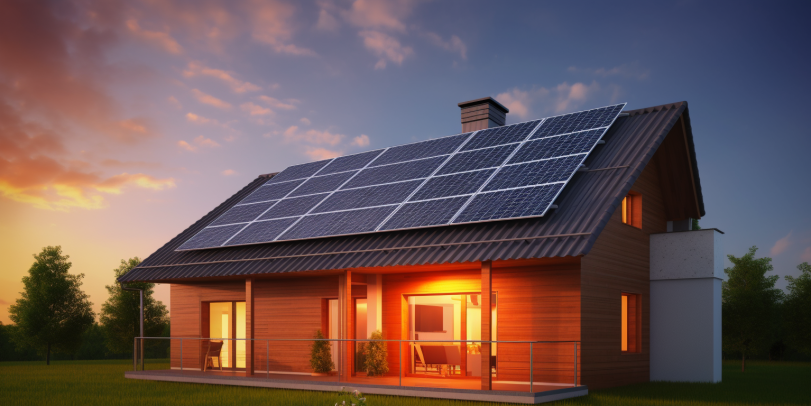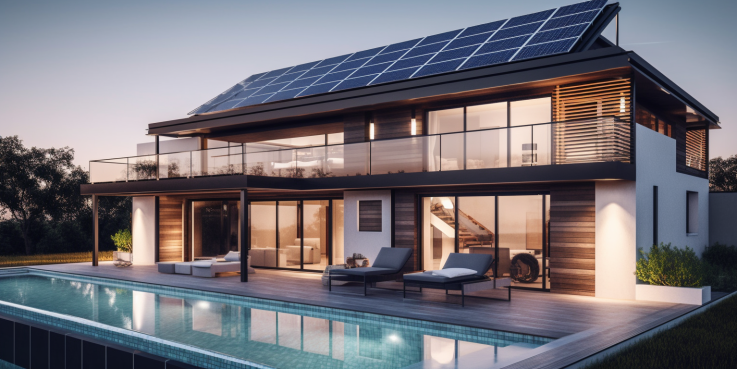
In the realm of sustainable energy solutions, the embrace of solar power has gained significant momentum in recent years. As the sun’s golden rays illuminate our world, harnessing its power through solar panels has become a popular choice for homeowners seeking to reduce their carbon footprint and lower their utility bills.
However, the number of solar panels required for a home is not solely determined by its square footage. Rather, it is contingent upon a myriad of factors that influence energy consumption and solar exposure. This article delves into the intricate web of variables that impact the solar panel needs for a home, ranging from electricity usage and bills to solar exposure and shade.
By understanding these factors, homeowners can make informed decisions and embark on their journey towards a more sustainable and energy-efficient future.
Key Takeaways
- Solar exposure and shade significantly impact solar panel efficiency.
- Limited solar exposure or significant shade may require more panels to generate desired electricity.
- Anticipated increases in usage, such as installing central air or purchasing an electric vehicle, should be considered when determining the number of solar panels needed.
- Government incentives can help offset the cost of solar panel installation.
Factors affecting solar needs
The number of solar panels needed for a 2,000 square foot home is influenced by various factors, such as the electricity usage, solar exposure, shade, and any anticipated increases in electricity usage, such as the installation of central air or purchase of an electric vehicle.
The electricity usage of a household plays a significant role in determining the number of solar panels required. Additionally, solar exposure and shade are important considerations as they directly affect the efficiency of the solar panels. Homes with limited solar exposure or significant shade may require more panels to generate the desired amount of electricity.
Furthermore, any anticipated increases in electricity usage, such as the installation of central air or purchase of an electric vehicle, should be taken into account when determining the number of solar panels needed. It is also worth considering government incentives that may assist in offsetting the cost of solar panel installation.
Electricity usage and bills
Electricity usage and bills for a 2,000 square foot home can vary depending on factors such as the number of occupants, appliances, and lifestyle choices.
The amount of electricity consumed in a home is directly related to the number and types of appliances used, as well as the frequency and duration of their usage.
For example, a household with multiple occupants and a high number of energy-intensive appliances, such as air conditioners, refrigerators, and laundry machines, is likely to have a higher electricity usage and, consequently, higher utility bills.
On the other hand, a household with fewer occupants and energy-efficient appliances may have lower electricity consumption and, consequently, lower utility bills.
It is important to consider these factors when determining the number of solar panels needed for a 2,000 square foot home, as higher electricity usage would require a larger solar array to meet the energy needs of the household.

Solar exposure and shade
Solar exposure and shade can significantly impact the efficiency of solar panels, with studies showing that homes with optimal sun exposure can generate up to 50% more solar energy compared to homes with significant shade coverage.
The efficiency of solar panels is directly related to the amount of sunlight they receive. In areas with abundant sunshine, solar panels can produce more electricity, while in areas with less sunlight, their efficiency may be lower.
Additionally, the impact of climate on solar panel efficiency should be considered. Extreme temperatures, such as excessive heat or cold, can affect the performance of solar panels and reduce their efficiency.
Therefore, it is important to assess the solar exposure and shade coverage of a home before determining the number of solar panels needed. This evaluation will help ensure that the solar system is appropriately sized to meet the energy needs of the home.

